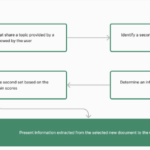You’ve worked hard to build your family law practice, but in today’s digital age, a strong online presence is crucial to success. As a family law attorney, your expertise and services are in high demand, so making sure potential clients can find you online should be a top priority. The good news is that by implementing targeted search engine optimization (SEO) strategies, you can elevate your practice and attract more of your ideal clients.
What Is SEO and Why It Matters for Family Law Firms
As a family law firm, your online presence and search engine optimization (SEO) strategy are crucial. SEO helps people find you when searching online for legal services related to divorce, child custody, adoption, and more. By optimizing your website and content, you can improve visibility in search engines like Google and Bing, attract new clients, and boost your practice.
What Exactly is SEO?
SEO stands for “search engine optimization.” It refers to the process of optimizing your website to rank higher in the results of search engines. The higher your ranking, the more likely people are to find you. SEO involves technical elements like page speed, internal linking, and meta titles. It also includes creating valuable content, like blog posts, that uses important keywords related to your practice area and location.
Why SEO Matters for Family Law Firms
Most people search online to find legal services. SEO allows you to tap into this huge potential source of new clients. With an effective SEO strategy, you can rank for searches like “family law attorney Springfield” or “child custody lawyer Chicago.” When people search for these terms, your firm will be at the top of the list.
SEO also builds authority and trust. Ranking highly in search engines signals to potential clients that you’re an established, reputable firm. Your content and social media profiles allow people to connect with your firm’s experience and expertise before ever contacting you. This can inspire confidence in people during an already difficult time.
SEO may seem complicated, but with the right approach, any family law firm can achieve great results. By optimizing your website, creating helpful content, building authority, and using the latest best practices, you can achieve higher rankings, greater visibility, and attract more of your ideal clients. Elevate your practice through the power of search.
Key SEO Strategies to Improve Your Firm’s Online Visibility
To boost your online visibility and attract more family law clients, focus on these key SEO strategies:
Optimize Your Website
Make sure your website is mobile-friendly, loads fast, and contains relevant content focused on your area of law. Include location pages, attorney bios, and service pages discussing your practice areas in depth. Use keywords throughout your content, like “family law attorney,” “child custody lawyer,” and “divorce mediation.”
Build High-Quality Backlinks
Backlinks from authoritative legal websites help establish your credibility and authority. Comment on industry blogs, write guest posts, and reach out to legal organizations and bar associations to link back to your website. Track your link building progress and aim for relevant, dofollow backlinks from trusted sources.
Improve Local SEO
Claim and optimize your Google My Business listing. Fill out your business profile completely and keep information up to date. Encourage client reviews and respond to all reviews promptly. Optimize your business name, address, and phone number on your website and citations. Ensure all listings on sites like Yelp, Avvo, and Lawyers.com are consistent and accurate.
Increase Your Online Reviews
Positive online reviews build trust and social proof. Make it easy for clients to review your firm on sites where you have a listing. Send a follow-up email after a case concludes or ask happy clients for reviews in person. Respond thoughtfully to each review, whether positive or negative.
With the right strategies in place, you can strengthen your online presence, reach more clients in need of your services, and take your family law practice to new heights. Focusing on optimizing your website, building quality backlinks, improving local SEO, and generating online reviews will help establish your firm as a leader in your market.
Optimizing Your Website for SEO Success
Optimizing your website for SEO success means making it easy for search engines like Google to find and rank your site. By improving your visibility in search results, you’ll drive more organic traffic to your site and attract potential new clients.
To optimize your site, focus on the following areas:
Content
The content on your site is the most important factor for SEO. Make sure you have high-quality, original content that’s relevant to your practice area. Publish blog posts, articles, and resources that provide value to readers. Use keywords related to family law and your location, like “child custody lawyer Atlanta” or “divorce mediation Chicago”. Having a blog is one of the best ways to improve your SEO and gain new clients.
Page titles and meta descriptions
The page titles and meta descriptions are what people see in search results, so optimize them to attract clicks. Your page titles should be compelling and contain your target keywords, like “The Best Child Support Lawyers in Houston – Jones & Smith Family Law”. Meta descriptions should be 150-160 characters and give a brief summary of the page content.
Internal linking
Link to other pages on your site to keep visitors engaged. For example, link from your bio page to your services page or from a blog post to related posts. Internal links also help search engines discover and rank your important pages.
Mobile-friendliness
With more and more people searching on their phones, having a mobile-friendly website is crucial for SEO. Make sure your site displays properly on mobile devices and pages load quickly. If not, you could be penalized in search rankings.
Schema markup
Add schema markup to your site to give search engines more information about your business and content. Use schema for your business info, blog posts, events, reviews, and more. Schema helps search engines understand your site better and rank it higher in results.
By focusing on content, technical SEO, and user experience, you’ll elevate your online presence and attract more clients through organic search. Keep optimizing and improving your site over time to maintain your search rankings and stay ahead of the competition.
Creating Shareable and Keyword-Rich Content
Creating shareable and keyword-rich content is key to improving your visibility and ranking in search engines. Focus on publishing blog posts, videos, and other media that provide value to your potential clients.
Blog Posts
Publish blog posts on your website on a consistent basis, at least once a month. Write about common family law issues and questions in your area. Discuss changes in laws and procedures. Provide helpful advice and tips for those going through a divorce or custody issue. These posts should be between 500 to 1,000 words, thoroughly researched, and include relevant keywords.
Once published, be sure to share your posts on social media platforms like Facebook and LinkedIn to increase traffic. Look for opportunities to get other legal professionals and local organizations to share your content as well. The more shares and backlinks you get, the higher your search ranking will become.
Videos
Creating video content is a great way to connect with potential clients. Film short videos explaining common family law terms and procedures. Discuss what to expect during the initial consultation or steps involved in filing for divorce. Keep videos under 2 minutes for the best engagement.
Optimize your videos for search by including keywords in the title, description and video transcript. Promote your videos on social media and your website. Link to them in your blog posts and newsletters. Again, aim for as many shares and backlinks as possible.
Newsletters
Start an email newsletter to stay in touch with current and potential clients. Share blog posts, videos and other resources. Discuss important law changes or events happening in your firm. Include a prominent call-to-action in each newsletter encouraging people to contact you for a free initial consultation.
To improve your search ranking, be sure to include an HTML version of your newsletter on your website. The content and keywords in each issue will help boost your visibility in search engines. Offer an archive of past newsletters as another resource on your site.
Using these techniques to create shareable and keyword-rich content will significantly impact your search optimization and help you attract more clients to your family law practice. Stay consistent and patient, as improving your online visibility and ranking is an ongoing process.
Leveraging PPC Ads to Attract Clients Searching for Legal Help
Pay-per-click (PPC) advertising allows you to promote your legal services to people actively searching for help online. By bidding on targeted keywords and phrases, you can attract clients to your website and capture their interest right when they need it most.
Choose Relevant Keywords
Focus your PPC campaign on terms that potential clients would search when seeking a family law attorney, such as:
- Divorce lawyer
- Child custody attorney
- Prenuptial agreement lawyer
- Alimony/spousal support legal counsel
Optimize Your Landing Page
Send traffic from your PPC ads to a landing page optimized for lead conversion. Include details about your experience, credentials, and a clear call to action, like a contact form. This gives visitors an easy way to reach out for a consultation right away.
Set a Realistic Budget
PPC campaigns can cost as little as $50 to $500 per month. Start with a modest budget you can sustain and monitor the results. Look at metrics like click-through rate, cost-per-click, and conversion rate to determine the effectiveness of your ads and make adjustments. You can scale up your budget over time as you gain more experience.
Consider Remarketing Ads
Once someone visits your website, remarketing ads allow you to stay in front of them with targeted messages. These ads have a high conversion rate since visitors are already familiar with your services. Use remarketing to encourage people to contact you for a consultation or case review.
Track and Optimize Your Campaign
Check your PPC campaign metrics regularly to see what’s working and make improvements. Look for ads and keywords with the highest click-through rates and conversion rates. Pause or remove underperforming ads. Refine your target audience and bids to improve results over time. With ongoing optimization, PPC can become one of your most effective client acquisition strategies.
Building Local SEO to Connect With Clients in Your Area
To rank well locally, focus on building citations and reviews from clients in your area. Local SEO relies heavily on word-of-mouth and personal recommendations.
Get reviews from current and past clients
Ask happy clients to leave reviews on sites like Google, Facebook, and Yelp. Explain that online reviews help other locals find your services. Offer an incentive like a small gift card for the time they take to write a review.
Monitor review sites regularly and politely respond to both positive and negative reviews. Thank clients for the praise and address any criticisms professionally. Engaging with reviews builds trust and shows you value client feedback.
Build local citations
Citations are mentions of your business name, address, and phone number on other websites. The more local citations you have, the higher you’ll rank in local search results.
Register your law firm on local business directories like YP.com, Manta, and Hotfrog. List your firm on your state’s bar website and consider joining organizations like your regional bar association.
See if local publications like newspapers, radio stations, and magazines will feature or mention your firm. Donate time or sponsor local events to increase your visibility and connections within the community.
optimize your Google My Business listing
Your Google My Business (GMB) profile appears prominently in Google local search and Maps. Optimizing it is key to local SEO success.
Double check that your business name, address, phone number, and website are accurate. Add photos of your office, staff, and building exterior. Post regular updates and articles to show your expertise.
Encourage clients and staff to leave reviews on your GMB profile. Respond to all reviews in a timely, professional manner. The more reviews and interaction, the more Google will trust your listing.
Local SEO does take time, but by focusing on personal relationships and community connections, you can build a steady stream of new local clients through organic search. Keep providing value to your neighbors and area residents, and your law firm will thrive.
Using Analytics to Track and Improve SEO Performance
Once your SEO strategies are in place, you need to track how they’re performing to determine what’s working and what needs improvement. Analytics tools like Google Analytics provide insights into how people find and interact with your website.
Monitor Organic Traffic
Check how many visitors are coming from search engines (organic traffic) and what keywords they’re using to find you. See which blog posts, service pages, and other content are driving the most organic traffic. Then optimize or promote that content further.
Track Rankings
Use a tool like SEMrush, Ahrefs, or Moz to monitor your rankings for target keywords in Google search results. See which pages have moved up or dropped in rankings and make adjustments as needed to improve visibility.
Identify Keywords with High Potential
Analytics can show you what keywords are driving traffic to your site. Look for related terms that you’re not currently ranking for but could be good targets. Create new content optimized for those keywords to tap into that search traffic.
Assess Bounce Rates
A high bounce rate means visitors are leaving your site quickly. Check which pages have high bounce rates and make them more engaging by adding video, images, examples or testimonials. Provide clear calls-to-action so visitors know what they can do on your site.
Review Visitor Behavior
See which pages visitors spend the most time on and what they click. This shows you what content resonates most with your audience. Produce more of that type of content and promote it to keep visitors engaged.
By regularly monitoring metrics like these, you’ll gain valuable insights into what’s working with your SEO and website. Don’t be afraid to test variations of your pages and content to find the optimal combination that ranks well and resonates with searchers. Continuous optimization and improvement are key to SEO success.
Handling SEO Yourself vs Hiring a Professional Agency
Handling your law firm’s SEO yourself can save money but requires a significant time commitment to do properly. Hiring an SEO agency, on the other hand, allows you to leverage industry knowledge and experience while freeing up your time to focus on your actual legal practice.
Do It Yourself
If you have a technical background and want full control over your SEO, handling it in-house may appeal to you. However, effective SEO requires ongoing monitoring and adjustments to rank for competitive search terms. Some tasks you’ll need to stay on top of include:
- Keyword research to discover search phrases potential clients are using
- Optimizing your website content, page titles, image alt text, and internal linking
- Building high-quality backlinks to improve your domain authority
- Staying up-to-date with Google’s algorithm changes and best practices
- Regular audits of your on-page and off-page SEO to identify opportunities for improvement
The learning curve can be steep, and if not done properly, your DIY SEO efforts may do more harm than good. But for those determined to manage it themselves, there are many helpful resources online to get you started.
Hire an SEO Agency
For most law firms, hiring a professional SEO agency is the prudent choice. Experienced SEO specialists have an in-depth understanding of strategies specifically for the legal industry and stay on the cutting edge of search engine algorithms and trends. Key benefits of working with an agency include:
- Tailored SEO roadmap and content strategy developed for your unique needs
- Proven SEO tactics to increase your rankings, traffic, and conversions
- Additional services like pay-per-click advertising, social media marketing, and analytics to amplify your results
- Ongoing monitoring and updates so you can focus on practicing law rather than SEO
- Many reputable agencies offer flexible pricing options to suit different budgets
If improving your online visibility and attracting new clients are priorities for your firm, partnering with a professional SEO agency is well worth the investment. An optimized search presence has the potential to significantly impact your bottom line and set you apart from competitors.
SEO for Family Law Frequently Asked Questions
SEO for family law can seem complicated, but by focusing on a few key areas, you can elevate your online presence and attract more clients. Here are some frequently asked questions to help you get started.
What are the most important SEO factors for my family law website?
The two most important factors are:
- High-quality content: Publish blog posts, web pages, and resources that demonstrate your expertise. Use keywords related to your practice area and location. Update content regularly to keep it fresh.
- Technical SEO: Make sure your website has a fast load time, clean code, and is mobile-friendly. Use SEO-friendly URLS, page titles, and meta descriptions for each page. Submit a sitemap to help search engines discover all your content.
How can I rank higher for competitive search terms?
To rank for competitive keywords like “divorce attorney” or “child custody lawyer,” focus on:
- Link building: Develop relationships with other legal professionals and local organizations to earn high-quality backlinks to your site.
- Local SEO: Optimize your Google My Business listing and profiles on sites like Avvo and Yelp. Build citations on local directories. Engage with your community.
- Paid ads: Use Google Ads and social media advertising to increase visibility for important search terms. Then optimize your landing pages to convert that traffic into leads.
How often should I create blog posts and other content?
Aim for publishing one new blog post per week, or at least two to three per month. Some other content ideas include:
- FAQ pages
- Legal resources/guides
- Podcasts
- Video tutorials
- Infographics
How can I use social media to support my SEO and marketing goals?
Social media is a key part of any law firm’s digital marketing strategy. Some best practices include:
- Post updates on Facebook, Twitter, and LinkedIn 2-3 times per week. Share blog posts, news in your practice area, and information about your firm.
- Build connections on LinkedIn with other attorneys, former clients, and people in your geographic region. Engage with their posts and invite them to connect with your firm’s page.
- Start a YouTube channel to share video FAQs, presentations, and other helpful content. Then promote your videos on social media and embed them on your website.
Conclusion
So there you have it – powerful, practical SEO strategies tailored specifically for family law practices. The time for action is now. Implement these expert tips, elevate your online presence, and watch as high-value clients start finding you. You’ve dedicated your career to helping families during difficult times. Now help your own practice by investing in proven SEO solutions. The rewards for your business and your clients will be well worth the effort. What are you waiting for? Get started optimizing your website and social media today. The future of your firm depends on it.



















